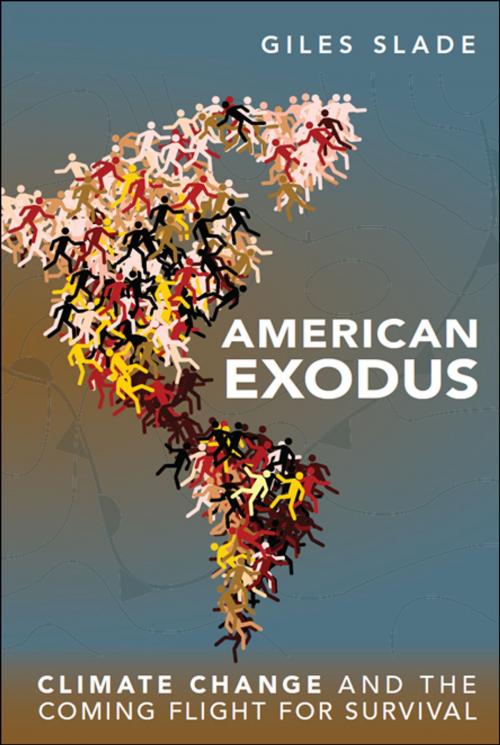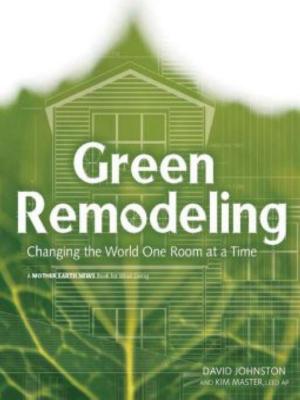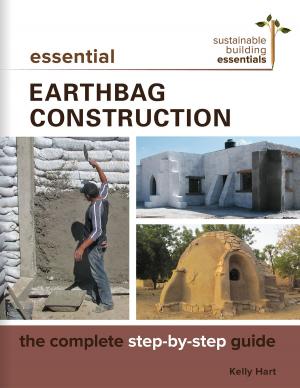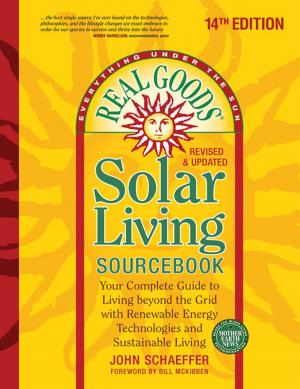| Author: | Giles Slade | ISBN: | 9781550925487 |
| Publisher: | New Society Publishers | Publication: | November 1, 2013 |
| Imprint: | Language: | English |
| Author: | Giles Slade |
| ISBN: | 9781550925487 |
| Publisher: | New Society Publishers |
| Publication: | November 1, 2013 |
| Imprint: | |
| Language: | English |
Some scientists predict the sea will rise 1.5 meters before 2100, but rapidly melting polar ice caps could make the real amount much higher. In the coming century, intensifying storms will batter our coasts, and droughts and heat events will be annual threats. All this will occur as population grows, and declining water resources desiccate agriculture. What will happen when the United States cannot provide food or fresh water for the overheated, overcrowded cities where 80% of Americans currently live? The good news is that this overall decline of habitability in the mid-latitudes will be matched by increases in the carrying capacity of sparsely populated lands above the 49th parallel. This phenomenon suggests that waves of environmental refugees will travel poleward as southern conditions worsen. Our northern lands are our Noah's ark - a vital refuge against the moment of mankind's greatest need. In this compelling cautionary tale, Slade argues that we are entering a long period of global desperation which will be characterized by human migration on an unprecedented scale. American Exodus is a frighteningly believable survey of our immediate future, but it ends on a note of hope: we may yet survive the coming century of climatic change if we act now to safeguard our shelter of last resort.Giles Slade is an award winning environmentalist concerned about the diminishing quality of life that awaits his children under climate change. His rich and colorful history also includes stints as a college lecturer, a Harlequin adventure novel writer, an illegal alien, a convicted felon and a college professor. The father of three, Giles is a passionate believer in the vital importance of leaving the smallest possible environmental debt to be resolved and accommodated in our children's century. He is regularly published in a variety of other print and online journals. He is the author of Made to Break: Technology and Obsolescence in America and The Big Disconnect: The Story of Technology and Loneliness.
Some scientists predict the sea will rise 1.5 meters before 2100, but rapidly melting polar ice caps could make the real amount much higher. In the coming century, intensifying storms will batter our coasts, and droughts and heat events will be annual threats. All this will occur as population grows, and declining water resources desiccate agriculture. What will happen when the United States cannot provide food or fresh water for the overheated, overcrowded cities where 80% of Americans currently live? The good news is that this overall decline of habitability in the mid-latitudes will be matched by increases in the carrying capacity of sparsely populated lands above the 49th parallel. This phenomenon suggests that waves of environmental refugees will travel poleward as southern conditions worsen. Our northern lands are our Noah's ark - a vital refuge against the moment of mankind's greatest need. In this compelling cautionary tale, Slade argues that we are entering a long period of global desperation which will be characterized by human migration on an unprecedented scale. American Exodus is a frighteningly believable survey of our immediate future, but it ends on a note of hope: we may yet survive the coming century of climatic change if we act now to safeguard our shelter of last resort.Giles Slade is an award winning environmentalist concerned about the diminishing quality of life that awaits his children under climate change. His rich and colorful history also includes stints as a college lecturer, a Harlequin adventure novel writer, an illegal alien, a convicted felon and a college professor. The father of three, Giles is a passionate believer in the vital importance of leaving the smallest possible environmental debt to be resolved and accommodated in our children's century. He is regularly published in a variety of other print and online journals. He is the author of Made to Break: Technology and Obsolescence in America and The Big Disconnect: The Story of Technology and Loneliness.















